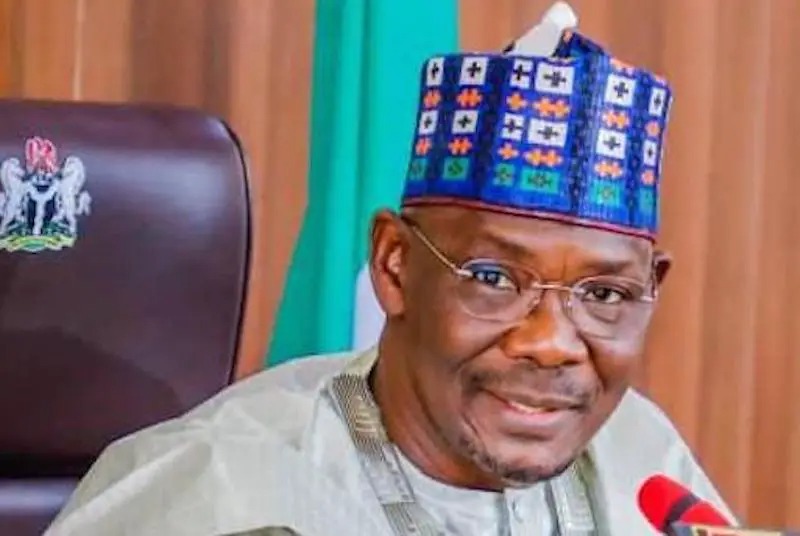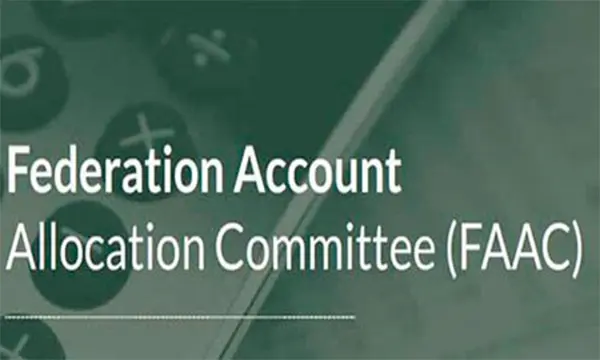News
NEITI launches ‘Opening Extractives’ for effective governance, transparency

The Nigeria Extractive Industries Transparency Initiative (NEITI), has inaugurated Opening Extractives in Nigeria, to tackle corruption and illicit financial flow for effective governance in the extractive sector.
The programme would also transform the availability of beneficial ownership information to respective stakeholders.
The News Agency of Nigeria (NAN), reports that Opening Extractives is a global programme designed to support national governments and stakeholders, to deepen beneficial ownership transparency and reforms in respective countries.
The programme was formally launched on Tuesday in Abuja, by Dr Zainab Ahmed, Minister of Finance, Budget and National Planning.
Ahmed was represented by Prince Clem Agba, Minister of State for Budget and National Planning.
NAN reports that the programme is jointly implemented by Global Extractive Industries Transparency Initiative (EITI) and Open Ownership.
The programme would ensure that government, industries and civil society actors, accessed reliable information on the ultimate owners of extractive companies.
Dr Orji Ogbonnaya Orji, Executive Secretary, NEITI, in an address, said the programme would operate an effective tax system and strengthen corporate accountability.
Orji noted that governments and organisations both in developing and developed countries were strategising to lift the veil of secrecy over ownerships of extractive assets of resource countries.
He lauded participating countries, bilateral and multilateral organisations, especially BHP Foundation, for their commitment towards the implementation of Opening Extractives in nine resource-rich countries to the tune of 7.2 million dollars in the next five years.
The NEITI helmsman, who noted that hidden corporate ownership posed danger to collective developmental aspirations, said NEITI was, however, working to expand its reports’ scope and deepen disclosures of beneficial ownership of Nigeria’s extractive assets.
He described the beneficial ownership transparency as a global norm of which Nigeria would not be left behind, given its experiences in the fight against corruption, insecurity, terrorism, money laundering and illicit financial flows.
Orji stated that the selection of Nigeria as one of the nine countries currently implementing Opening Extractives was a direct acknowledgement and recognition of President Muhammadu Buhari’s administration’s commitment to beneficial ownership transparency reforms.
He recalled that Nigeria joined the league of countries with a legal framework on the implementation of beneficial ownership transparency when the amended Companies and Allied Matters Act (CAMA) was signed into law in 2020.
The executive secretary explained that the act introduced mandatory disclosure of persons with significant control of the company in a register of beneficial owners.
He added that the President also signed the Petroleum Industry Act (PIA), which required the Nigerian Upstream Petroleum Regulatory Commission (NURPC) to keep a public register of beneficial ownership of licenses, leases and permits, among others.
He urged governments across the globe to emulate Nigeria and put in place the required legal frameworks on beneficial ownership disclosures in their respective countries to end the regime of corporate secrecy globally.
The NEITI boss, however, said it was bringing fresh perspectives by broadening the scope of its engagements with extractive industries stakeholders and finalising plans to revitalise the inter-ministerial Task Team (IMTT), to address remediation issues in NEITI.
He disclosed that NEITI 2020 Reports- Oil, Gas and Solid minerals are now in the final stages of completion, and shall be ready for release by the National Stakeholders’ Working Group (NSWG) before the end of 2021.
In a remark, Mark Robinson, EITI Executive Director, urged relevant agencies to improve transparency on beneficial owners of companies operating in Nigeria.
Robinson said the programme had the potential to accelerate Nigeria’s impressive efforts in advancing beneficial ownership transparency.
He said that the programme would enable stakeholders to address governance risks related to hidden ownership, and also maximise revenues from the extractive industries.
Robinson added that technical assistance would be delivered by EITI and other partners who could advise on and help improve frameworks and systems, and the use of high-quality ownership data through public registers. (NAN)
Headlines
Noble Ladies Champion Women’s Financial Independence at Grand Inauguration in Abuja

Women from diverse backgrounds across Nigeria and beyond gathered at the Art and Culture Auditorium, Abuja, for the inauguration and convention of the Noble Ladies Association. The event, led by the association’s Founder and “visionary and polished Queen Mother,” Mrs. Margaret Chigozie Mkpuma, was a colourful display of feminine elegance, empowerment, and ambition.
The highly anticipated gathering, attended by over 700 members and counting, reflected the association’s mission to help women realise their potential while shifting mindsets away from dependency and over-glamorization of the ‘white collar job.’ According to the group, progress can be better achieved through innovation and creativity. “When a woman is able to earn and blossom on her own she has no reason to look at herself as a second fiddle,” the association stated.
One of the association’s standout initiatives is its women-only investment platform, which currently offers a minimum entry of ₦100,000 with a return of ₦130,000 over 30 days—an interest rate of 30 percent. Some members invest as much as ₦1 million, enjoying the same return rate. Mrs. Mkpuma explained that the scheme focuses on women because “women bear the greater brunt of poverty” and the platform seeks “to offer equity in the absence of economic equality.”
Education is also central to the Noble Ladies’ mission, regardless of age. Their mantra, “start again from where you stopped,” encourages women to return to school or upgrade their skills at any stage in life. The association believes that financial stability is vital in protecting women from cultural practices that dispossess widows of their late husbands’ assets, while also enabling them to raise morally and socially grounded families.
Founded on the vision of enhancing women’s skills and achieving financial stability, the association rests on a value system that discourages pity and promotes purpose. “You have a purpose and you build on that purpose to achieve great potentials and emancipation,” Mrs. Mkpuma said.
A criminologist by training and entrepreneur by practice, she cautions against idleness while waiting for formal employment. “There are billions in the informal and non-formal sectors waiting to be made,” she said, rejecting the “new normal of begging” and urging people to “be more introspective to find their purpose in life and hold on to it.”
Mrs. Mkpuma’s management style keeps members actively engaged, focusing on vocational skills and training to prepare them for competitive markets. She is exploring “innovative integration of uncommon technologies” and is already in talks with international franchises to invest in Nigeria, with Noble Ladies as first beneficiaries.
The association’s core values include mutual respect, innovation, forward-thinking, equal opportunity, and financial emancipation. With plans underway to establish a secretariat in the heart of Abuja, the group aims to expand its impact.
The event drew high-profile guests, including former Inspector General of Police, Mike Okiro, and a host of VIPs, marking a significant milestone in the association’s drive for women’s empowerment.
Headlines
NEPZA, FCT agree to create world-class FTZ environment

The Nigeria Export Processing Zones Authority (NEPZA) has stepped in to resolve the dispute between the Federal Capital Territory Administration and the Abuja Technology Village (ATV), a licensed Free Trade Zone, over the potential revocation of the zone’s land title.
Dr. Olufemi Ogunyemi, the Managing Director of NEPZA, urged ATV operators and investors to withdraw the lawsuit filed against the FCT administration immediately to facilitate a roundtable negotiation.
Dr. Ogunyemi delivered the charge during a courtesy visit to the Minister of the Federal Capital Territory, Barrister Nyesom Wike, on Thursday in Abuja.
You will recall that the ATV operators responded to the revocation notice issued by the FCT administration with a lawsuit.
Dr. Ogunyemi stated that the continued support for the growth of the Free Trade Zones Scheme would benefit the nation’s economy and the FCT’s development, emphasizing that the FCT administration recognized the scheme’s potential to accelerate industrialisation.
Dr. Ogunyemi, also the Chief Executive Officer of NEPZA, expressed his delight at the steps taken by the FCT minister to expand the economic frontier of the FCT through the proposed Abuja City Walk (ACW) project.
Dr. Ogunyemi further explained that the Authority was preparing to assess all the 63 licensed Free Trade Zones across the country with the view to vetting their functionality and contributions to the nation’s Foreign Direct Investment and export drives.
“I have come to discuss with His Excellency, the Minister of the Federal Capital Territory on the importance of supporting the ATV to succeed while also promoting the development of the Abuja City Walk project. We must work together to achieve this for the good of our nation,” he said.
On his part, the FCT Minister reiterated his unflinching determination to work towards President Bola Ahmed Tinubu’s Renewed Hope Agenda by bringing FDI to the FCT.
“We must fulfil Mr. President’s promises regarding industrialization, trade, and investment. In this context, the FCT will collaborate with NEPZA to review the future of ATV, a zone that was sponsored and supported by the FCT administration,” Wike said.
Barrister Wike also said that efforts were underway to fast-track the industrialisation process of the territory with the construction of the Abuja City Walk.
The minister further said the Abuja City Walk project was planned to cover over 200 hectares in the Abuja Technology Village corridor along Airport Road.
According to him, the business ecosystem aimed to create a lively, mixed-use urban center with residential, commercial, retail, hospitality, medical, and institutional facilities.
He added that the ACW would turn out to be a high-definition and world-class project that would give this administration’s Renewed Hope Agenda true meaning in the North-Central Region of the country.
Barrister Wike also indicated his continued pursuit of land and property owners who failed to fulfil their obligations to the FCT in his determination to develop the territory.
Headlines
Benue IDPs block highway, demand return to ancestral homes

Vehicular movement along the Yelwata axis of the Benue–Nasarawa highway was brought to a standstill on Wednesday as Internally Displaced Persons, IDPs, staged a protest, demanding immediate return to their ancestral homes.
The protesters, believed to be victims of persistent attacks by suspected herdsmen, blocked both lanes of the busy highway for several hours, chanting “We want to go back home”.
The protest caused disruption, leaving hundreds of motorists and passengers stranded.
Eyewitnesses said the displaced persons, many of whom have spent years in overcrowded IDP camps, are expressing deep frustration over the government’s delay in restoring security to their communities.
“We have suffered enough. We want to return to our homes and farms,” one of the protesters told reporters at the scene.
Security personnel were reportedly deployed to monitor the situation and prevent any escalation, though tensions remained high as of press time.
Efforts to reach the Benue State Emergency Management Agency, SEMA, and other relevant authorities for comment were unsuccessful.
-

 Headlines4 years ago
Headlines4 years agoFacebook, Instagram Temporarily Allow Posts on Ukraine War Calling for Violence Against Invading Russians or Putin’s Death
-

 Headlines4 years ago
Headlines4 years agoNigeria, Other West African Countries Facing Worst Food Crisis in 10 Years, Aid Groups Say
-

 Foreign4 years ago
Foreign4 years agoNew York Consulate installs machines for 10-year passport
-

 News1 year ago
News1 year agoZero Trust Architecture in a Remote World: Securing the New Normal
-

 Entertainment3 years ago
Entertainment3 years agoPhyna emerges winner of Big Brother Naija Season 7
-

 Headlines1 year ago
Headlines1 year agoNigeria Customs modernisation project to check extortion of traders
-

 Entertainment2 years ago
Entertainment2 years agoMovie download platform, Netnaija, announces closure
-

 Economy2 years ago
Economy2 years agoWe generated N30.2 bn revenue in three months – Kano NCS Comptroller















